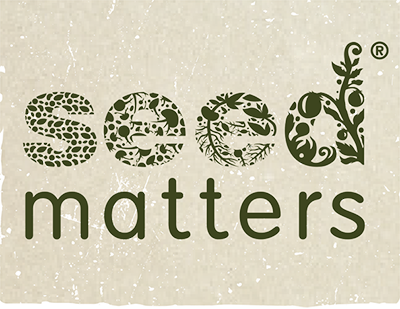
Our Food Future Starts with Seed Today
“A fundamental tenet of plant breeding is that we must breed for the agriculture of the future.” – Bill Tracy, Ph.D.
Bill is a sweet corn breeder at the University of Wisconsin and one of the researchers we support through Seed Matters. Imbedded in his statement is the reality that the seed decisions we make today—as investors, donors, gardeners, farmers, plant breeders—will set the table for our food future.
Unfortunately, too few people control our food future. The reality is that not only do five companies control more than 60% of commercial seed, but these five are focused on breeding crops that thrive with agricultural chemicals (that they also happen to sell), and these five have strategic partnerships with some of the biggest industrial food producers and retailers on the planet. The table of tomorrow will not be healthy for people or the planet if we don’t change the direction of seed today.

Photo source: Dr. Phil Howard, Michigan State University
Seed was once managed and maintained as a public resource with intellectual property rights in the form of Plant Variety Protection Act certificates that were adequate to compensate private plant breeders for their work, while allowing both farmers and other researchers to save seed and continue to breed and improve seed for new environmental conditions. Diversity and competition thrived through most of the twentieth century with public and private breeding programs that delivered improved seed.
This changed dramatically when the Supreme Court upheld the use of utility patents on living organisms, including agricultural crops. Utility patents permit owners to exclude others from making, using, or selling the invention for a period of up to twenty years from the date of patent application filing. As a result, Large corporations that had little to no previous investments in seed—primarily chemical and pharmaceutical companies—began to buy up independent seed companies and apply for parents on both genetically engineered and naturally occurring traits (like heat tolerance, or even the flavor of a melon!). These companies now set the direction for plant breeding, and the future of our food.
Organic farmers have been impacted by this concentration in the market. The conventional-chemical seed sector had little interest in serving organic farmers (especially after they failed in their lobbying attempts to get genetic engineering included as an acceptable method in the National Organic Program—the federal rules that govern organic food). So who will serve organic farmers with new seed varieties improved for organic conditions, bred for higher nutrition or more seasonality?
It’s expensive to develop new breeding programs and new seed companies. Breeding one variety can take a decade or more with tens of thousands in costs. The organic seed market has grown very slowly, not keeping pace with the growth in organic sales. As such, organic farmers are underserved, and in some crops they continue to lack seed specifically adapted to their farming methods, regions, and market niches.
What’s the solution to diversify our seed to meet the needs of the organic community? Yes, we need to fight patents and control of our seed… and we can post angry screeds against the big bad Gene Giant seed companies on social media, but does it bring change? At Seed Matters we invest in organic seed by funding innovative research that breeds seed for organic gardeners and farmers so that more people have access to high quality, affordable, nutritious food that protects our planet. And yeah, the seed our partners breed isn’t patented… it’s public seed for the good of all.
For more information on seed industry concentration as well as impact on organic, please see: Who’ll Own the Seed?